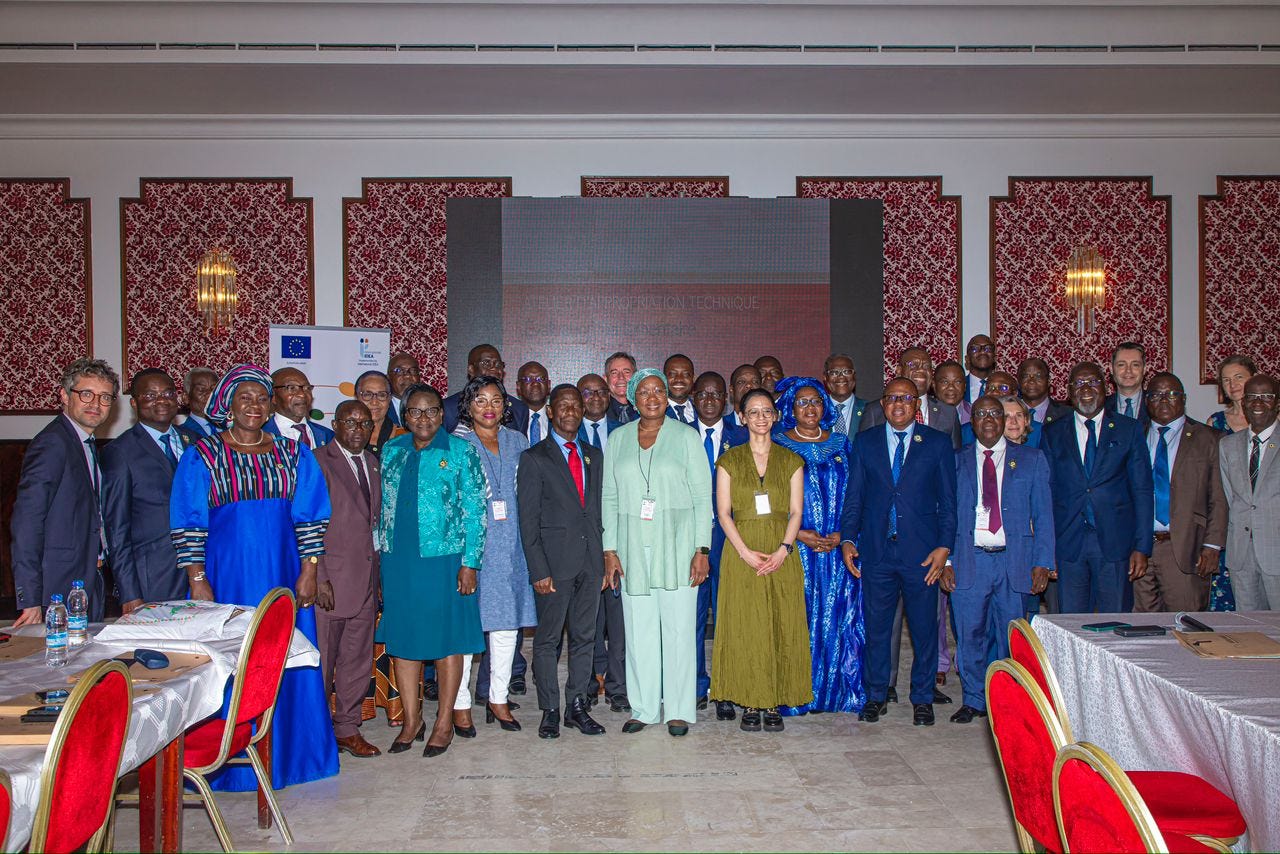When we talk about international cooperation in legislative work, the stories often remain behind closed doors. But sometimes, these stories of quiet transformation need to be told — especially when they show how parliaments can come together across continents to tackle the shared challenge of making public policies more effective.
This is one of those stories.
In 2021, Côte d’Ivoire’s Parliament — both its National Assembly and Senate — signaled its interest in deepening its capacity to evaluate the real-world impacts of public policy. Around the same time, the Inter Pares program, funded by the European Union and implemented by International IDEA, was expanding its network of peer-to-peer parliamentary partnerships.
That’s where Mónica Rico Benítez comes in. A program officer at Inter Pares, Mónica joined the initiative just as the Côte d’Ivoire partnership was gaining steam. Her job: help translate this demand for evaluation into a concrete and collaborative path forward.
Listening First
Inter Pares doesn’t parachute in with a pre-made model. “Our program is demand-driven,” Mónica told me. “We start with a scoping mission, working with the EU delegation on the ground to talk to parliamentarians and staff, to listen and learn what they actually want.”
In Côte d’Ivoire, the request was clear: help us make our newly created parliamentary committees on policy evaluation actually function. The National Assembly had established a committee back in 2018, but the practical work hadn’t yet started. What they needed wasn’t more theory — it was structure, tools, and guidance on how to make evaluation part of the parliamentary routine.
Enter the French Parliament
Once the needs were mapped out, Inter Pares launched a call to EU member state parliaments. Both chambers of the French Parliament stepped up, offering to share their experience with evaluation of public policies (EPP), along with early support from the Swedish Riksdag.
What followed was a multi-phase learning process. It began with a study visit, then evolved into remote and in-person exchanges, and culminated in the co-creation of a practical guide for policy evaluation tailored specifically for the Ivorian parliamentary context. A French expert, Olivier Rozenberg, played a key role in shaping the guide’s content.

By April 2024, the guide was launched in Abidjan through a hands-on workshop with parliamentarians and staff from both chambers. The format was interactive: roundtables focused on real use cases, such as restrictions on imported used cars and the challenges of illegal gold mining.
And it worked. “The evaluation of the government’s measures to fight illegal gold mining is happening as we speak,” Mónica shared. Members of the National Assembly have been visiting mining sites and collecting data — putting the guide into practice and creating real accountability links between parliament and the communities it serves.
A Two-Way Street
What makes this partnership unique is that it’s not just technical — it’s also human. Both MPs and staff are involved, and both chambers in Côte d’Ivoire work in tandem, with each committee acting independently but under a shared framework.
And the learning has been mutual. For France, the process reaffirmed how peer exchange can refine even well-established practices. For Côte d’Ivoire, the benefits have been tangible: better coordination between MPs and staff, more evidence-based discussions, and stronger connections with citizens.
As Mónica put it, “Evaluation helps rationalize public action. It makes the political debate technical in a constructive way—grounded in evidence and focused on the common good.”
What’s Next?
In June 2026, a new workshop will take place in Abidjan, focused on the next frontier: how to evaluate cross-cutting policies — like those that touch on environment, gender, or youth — and how to follow up on recommendations.
There’s also a new phase in the works: a public version of the evaluation guide, aimed at helping other parliaments explore EPP and different evaluation models, including post-legislative scrutiny.
As someone who travels often and talks with legislators around the world, I’ve seen how cross-border cooperation like this can spark innovation and hope. Despite political differences and institutional complexity, parliamentarians everywhere are asking similar questions: How do we know our laws work? How do we serve the public better?
This partnership between Côte d’Ivoire and France — facilitated by Inter Pares — is a possible answer.




